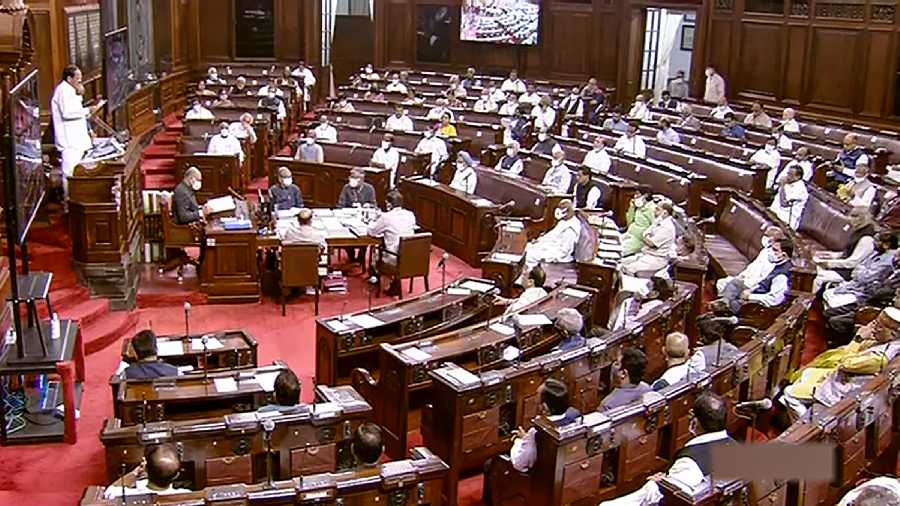Forbidden words
Sir — The power of the spoken word is enormous. Is that why the Lok Sabha secretariat has identified certain commonly-used expressions as too strong for the temple of democracy? Words like ‘jumlajeevi’, ‘baal buddhi’, ‘shakuni’ — stock phrases used to call out the present regime — will be considered ‘unparliamentary’. Even words like ‘ashamed’, ‘abused’ and ‘betrayed’ will be expunged from the House records. Of late, informed parliamentary debates have become rare and proceedings are often disrupted with members coming to blows. But will a sanitised vocabulary help ensure discipline?
Anurag Anand, Patna
Voice of reason
Sir — It was heartening to see the Nobel Prize-winning economist, Amartya Sen, express his admiration for Anandabazar Patrika at the latter’s centenary celebrations on July 9 (“When nation is being divided, a powerful voice is needed”, July 10). Sen, who was the chief guest at the occasion, reflected on the role that the newspaper had played in India’s freedom struggle and how it continues to be a formidable voice in Indian journalism. Sen cautioned that the situation in present-day India is not much different from its colonial past. Issues like poverty and unemployment are still plaguing the country. There is also an attempt by the sangh parivar to divide the nation along religious lines and colonial laws are being brazenly used to put dissenters behind bars without trial. Sen lauded the media group for tirelessly highlighting these issues in an objective manner.
S.S. Paul, Nadia
Sir — Amartya Sen expressed concern over the current state of affairs in India at the inauguration of the Amartya Sen Research Centre. Sen asserted that the breakdown of the multicultural ethos of the nation has become a cause for concern. He reminded the audience that it is the amalgamation of different cultures and religions — Hindus, Christians, Muslims, Jews, Parsis and others — that enriched Indian culture. Now, this pluralistic idea of India is under threat. This has led to the decline of our schooling system. The economist insisted that the education system in the past helped inculcate crucial values among the students which are now in short supply. The judiciary must intervene before it is too late.
Jahar Saha, Calcutta
Red alert
Sir — The editorial, “Receding goals” (July 10), sheds light on the uncertainties in meeting the current Sustainable Development Goals that are essential for an equitable society. According to the Sustainable Development Goals Report 2022, the combined effect of the three Cs — Covid-19, global conflict and climate change — has posed insurmountable difficulties in achieving at least 17 SDGs. This is alarming. Political leaders around the world must focus on attaining the SDGs in a time-bound manner and bring about a sustainable world order.
Sukhendu Bhattacharjee, Hooghly
Welcome move
Sir — The National Medical Commission has amended the undergraduate medical syllabus to teach how virginity tests are unscientific, inhumane and discriminatory. This is a positive development. The virginity test or two-finger test is carried out by medical practitioners in cases of matrimonial dispute or rape to assess the virginity of the woman in question. In 2013, the Supreme Court held that the two-finger test violates the right to privacy and asked the government to provide better medical procedures to confirm sexual assault. The World Health Organization has also called for a ban on virginity testing. The NMC’s decision is a step towards doing away with such unscientific medical practices.
Vijay Singh Adhikari, Nainital











